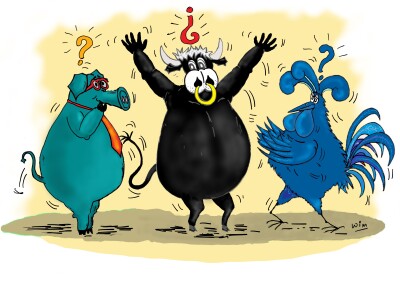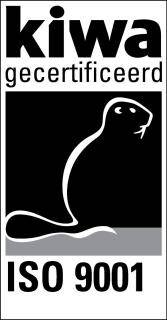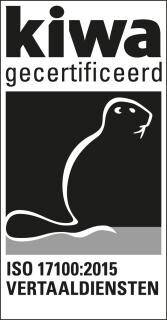.jpg)
What is localisation and why is it so important?
Literal translations are never a good idea, but in many cases they’re absolutely out of the question. A source text has its roots in the culture in which it was written and those cultural elements aren’t always applicable to the target country. That’s why localisation is so important. This means that products such as software, marketing texts, websites, audio visual material, books and trade journals are adapted for suitability of use in other countries or regions. The translation process takes cultural values and norms into account, as well as the needs and expectations of the specific target market. When it comes to localisation, it’s a good idea to work with a professional translation agency, as they are aware of these prerequisites.
Language localisation
Localisation can influence both language and writing style, and has similarities with a standard translation. Think of the usage of punctuation marks and spaces. This differs from country to country, and between languages too. In English, thousands are indicated by a comma (e.g. 200,000) and decimals by a full stop (such as 30.18). Other examples: the € symbol is placed after the amount in France, Spain, Portugal and Poland, and the French put a space in front of a some punctuation marks (: ; ? !) . Spaniards begin a question with an inverted question mark (¿Dónde está mi coche?).
Localisation of URLs and contact information
Another basic requirement of localisation is the adaptation of web addresses and contact information. This mainly applies to the translation of press releases and marketing material for internationally operating companies. Imagine that an internationally active company wants to publish a brochure in several different countries. You’ll need to ensure that the Dutch version includes a link to the Dutch website, and the address and contact information of the local branch. Even if the remaining content is the same, we can still refer to this as a localised brochure.
Cultural localisation
In most cases, basic levels of localisation as outlined above aren’t enough to effectively tailor a product or marketing communication to a specific market or target group. And there’s something else that needs to be considered: cultural differences. When localising a website, you’ll need to take into account notation and practical information, and also wording, expressions, forms of address, keywords, use of colour and design, to name a few. Sometimes, a complete rewrite of a brochure is required, as the complete product list may not be available in the country in question. Texts may also refer to current local events, which often have little relevance in other countries. Last but not least: product names, terms, expressions or phrases may have a different, embarrassing or even insulting meaning in other languages. Therefore, it’s very important that the translator knows the local market, and has a perfect command of the language. After all, you want to inform customers clearly and concisely, not confuse or upset them.
Successful localisation is not only important for marketing communication, but also applies to translating legal documents such as contracts, agreements or notarial deeds. Legal institutions and procedures differ between countries. A legal term will often have a different meaning in another language, and this requires thorough knowledge of the legal system in the specified country. Rigorous checks must be carried out to ensure the translation adheres to local laws and procedures. Legal translators often have a legal background in the form of a law degree, but they are primarily translators and not lawyers. To provide the best quality, these documents must be localised or at the least, checked, by a lawyer from the target region.
Localisation: more than just text
When localising their products, large companies in particular go much further than simply localising the text. Animation studio Pixar adapted a number of scenes in the film Inside Out to suit international audiences. An example of this is the scene where the characters are watching ice hockey. As the sport is mainly popular in North America, Pixar also released a version in which ice hockey is replaced by a football match. . However, some countries still chose for the version including the ice hockey scene, because the story was set in the USA and therefore felt more appropriate. This example shows how complex localisation can be.
Another well-known example comes from the film Pulp Fiction, directed by Quentin Tarantino. In a famous scene, one of the main characters explains that a McDonald’s Quarter Pounder is called a ‘Royale’ in France, because the French are unfamiliar with the British-American measurement system and therefore don’t know what a ‘pound’ is. Incidentally, the burger is also called a Quarter Pounder in the Netherlands. Apparently, the unit of measurement isn’t so significant here.
Coca Cola is a good example of a company that carefully implements its localisation strategy. In 2013, the soft drinks company launched the ‘Share a Coke’ campaign, in which each bottle label was given a different name. . The names were aligned to suit the country in which the Cola was sold, but the company was also aware of local sensitivities. In China, it’s unacceptable in this context to address someone by his or her first name. Coca Cola was able to navigate this problem by using terms such as ‘good friend’ and ‘classmate’ instead. This way, the manufacturer was able to respect cultural differences, whilst retaining the personal touch of its marketing campaign.
Want to know more about why good localisation is important? Then get in touch with the translation and localisation specialists at AgroLingua! We’re specialists in translation and localisation, taking jargon, culture and the conventions of every country and language into account.
Back to blogs





